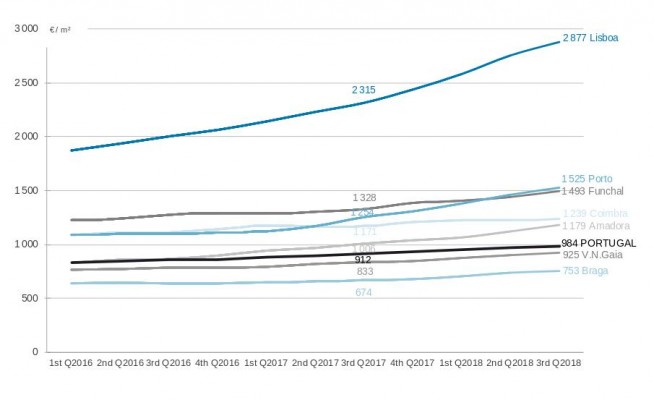When moving to a new home, one would need to make a number of important decisions such as the location of the property which may be determined by your reason for moving, for example, if you obtain a job in a new city then you may need to find a long-term rental apartment or buy an available house for sale within that city. Similarly, decisions about the type of property to live in are indeed essential as this may determine the cost of the property and as such a budget would need to be made to accommodate the prices of the property. There are several property types based on their sizes such as a studio, an apartment, a house or a villa, these can be obtained at very different prices. Another factor to consider is the type of contract under which the property is to be obtained especially as the documents, requirements and immediate cost of a long-term rental is significantly different from those of a property for sale. After these factors have been considered and the appropriate decisions made, we can delve into the conditions under which one can find a house for sale and subsequently buy a property in Portugal.
Prices of houses for sale in different regions
Portugal is a country with a range of properties which vary depending on style, size and purpose of property which makes buying a property in Portugal very appealing. These properties are also located in significantly diverse regions of the country such as major cities like Lisbon, coastline and holiday regions including Algarve or more historical areas like Alentejo. All these elements have considerable effects on the prices of properties available such as villas or houses for sale across the country. Due to the demand for houses for sale in 2018, it was noted that the prices of such properties were on the rise as was evident in the 1.5% increase of the average price per square metre of houses for sale in the third quarter of 2018 over the second quarter of the same year. The average prices of villas or houses for sale observed across Portugal were then at €984 per square metre. Comparing this average price per square metre with other coastline counties in Europe, it is safe to say that buying a property in Portugal is quite affordable.
Studies obtained from the National Statistics Institute (INE) of Portugal also revealed that the location of the properties greatly influence the prices of houses for sale within the region as properties in Lisbon, Algarve and Madeira seemed to be the most expensive. The average prices of villas for sale within those regions when considering the trends of the later part of 2018, ranged from €1,203 per square metre in Madeira to about €1,318 per square metre seen in Lisbon and finally rising up to the highest level in Algarve where the prices per square metres of villas for sale reached €1,500. A more in-depth review revealed that the villas for sale in Cascais municipality increased to about €2,167 per square metre while those in Porto were up to €1,525 per square metre. These prices are relatively high when compared to the prices of villas for sale in regions such as Alto where they were about €595 per square metre and even in Alentejo where properties could be found at €423 per square metre.

An overall view of the real estate market when comparing the prices of houses for sale between 2017 and 2018 shows that there was a 4.6% rise in prices of properties located in Alentejo, Lisbon experienced a growth of 7.3% while those in Algarve increased by 9.4%. These prices are estimates based on the value of the properties as attributed by the INE and as such they may vary with each institution. Analysts project that due to the increase in the rate at which new villas for sale are being built in Portugal, the prices of properties which have already been pre-owned would continue to reduce thus making it important to keep track of such trends in search of profitable offers.
Basic documents required when buying a property
There are some legal requirements which need to be fulfilled and specific documents which must be provided before any property can be sold. The basic documents include are an official identification and a taxpayer number. The official identification, which is called the “Cartão de cidadão” in Portuguese, can be in the form of a Passport or a specific country’s identity card, a citizen’s card. A taxpayer number, referred to as the “Número de contribuinte”, is an essential part of all the financial and legal transactions as it is used for tax payment purposes. This number is also required for operations including the opening of a bank account in the country, obtaining a mortgage or loan to buy any of the villas for sale or even installing electrical and similar facilities. This “Número de contribuinte” can be obtained at the regional finance department by presenting a “Cartão de cidadão” along with documents of satisfactory living conditions.
Other additional tips when buying a property
It may also be prudent and relatively easier to conduct financial transactions using a local Portuguese bank account. This may not pose much of a challenge, especially if you already have a bank account within the European Union (EU) as the transactions are managed in a unified manner and many banks offer valuable services to their clients. Another very important point to consider is identifying and enlisting the services of reliable and qualified real estate agents which can be achieved by considering online property portals. These sources give more information about the available houses or villas for sale within the specific region in Portugal and also help to understand the real estate trends, opportunities and programs which may be advantageous when buying a property or considering a house for sale in the country. Using internationally reputable real estate agents and portals also offer the benefit of several languages of communication as some of these service providers are focused on international clients looking for villas for sale in Portugal.
Governmental strategies to encourage investment in real estate
The Portuguese government has previously initiated several schemes to encourage foreign investment in real estate and a number of these have been successful so far.
An example of such schemes includes the “golden visa” which allows foreign investors obtain residency in Portugal when they invest a minimum of €500,000 in the country’s economy. Many investors take advantage of this opportunity by buying a property including villas and houses for sale in the country as this fast-tracks the process and thus helps investment in real estate. A similar scheme is the “non-habitual resident” program which supports retirees and pensioners who would like to live in Portugal as they can receive relatively low tax rates or even pension tax exemptions on their income obtained both locally and globally (although this may have some limitations).
Another tax-based strategy implemented by the Portuguese government to encourage investment in real estate is the inheritance tax. This has the advantage of protecting immediate relatives including one’s children, legal spouse and even the parents from paying this tax.
Conclusion - Buying a property in Portugal
2019 seems to be a good year to invest in the Portuguese real estate market by buying a property as the tax reliefs made available by the government, along with the “golden visa” program and the projections made about prices of villas for sale in the country all seem to merge into a lucrative opportunity for investment in real estate. Considering that these attractive benefits gotten from buying a property in Portugal will lead to an increased demand for houses for sale, it would be a strategic move for property owners and developers to offer more houses for sale so as to get sizeable returns. These go further to support the argument for buying a property in Portugal this year.
Schedule









